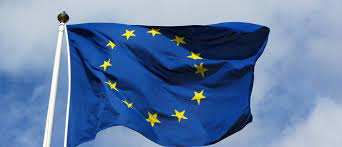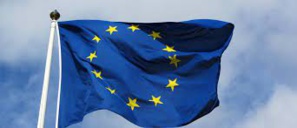The European Union's executive highlighted plans to collect more than $140 billion from energy companies to help protect households and businesses from rising prices that threaten economic recession and insolvency.
European gas and power prices have skyrocketed this year as Russia reduces fuel exports in retaliation for Western sanctions over its invasion of Ukraine, leaving many people unable to pay their bills and utilities in a liquidity crisis. more info
According to the European Central Bank's chief economist, higher prices are still a "dominant driving force of inflation" in the eurozone.
European governments have responded by imposing price caps on consumer electricity and gas, as well as providing credit and guarantees to power companies in danger of going bankrupt.
"EU Member States have already invested billions of euros to assist vulnerable households. But we know this will not be enough," European Commission President Ursula von der Leyen told the European Parliament.
Separately, in an effort to protect consumers from record-high inflation, France announced new energy price caps for 2023, while Denmark prepared its own temporary energy bill ceilings.
In Germany, Uniper, the country's largest importer of Russian gas, said the government might take a controlling stake to help it deal with the crisis, and a local utilities industry group warned of power company insolvencies.
The European Commission's proposal includes capping revenues from electricity generators that benefit from higher prices but do not use gas. It also included provisions requiring fossil fuel companies to share windfall profits from energy sales.
"In these times it is wrong to receive extraordinary record revenues and profits benefiting from war and on the back of our consumers," von der Leyen said.
National governments would be in charge of recouping the excess revenue and reinvesting it in measures such as lowering electricity bills or assisting consumers in investing in energy-saving measures such as home insulation.
The EU plan did not include an earlier proposal to cap Russian gas prices, after Russia threatened to cut off all fuel supplies if one was implemented.
The Commission stated that it was still investigating a Russian gas price cap and was discussing the concept of broader gas price caps, which have also divided member states and were not included in Wednesday's proposals.
Europe's benchmark gas price rose to around 208 euros per megawatt hour (MWh), well below an August high of 343 euros but more than 200 per cent higher than a year ago.
Europe has rushed to replenish its storage facilities, exceeding a target of having them 80 per cent full by November. However, Russian supply cuts, attributed to sanctions impeding maintenance, make the winter outlook uncertain.
Moscow downplayed the impact of lost gas sales to Europe, claiming that other countries were willing to buy its energy as Europe sought to reduce its reliance on Russia.
"Months of geopolitical wrangling have left the European gas market whiplashed, with volatile prices stemming from lack of supply, potential market intervention, and wider uncertainty,” Rystad analyst Zongqiang Luo said.
The European Union's securities watchdog will implement temporary market fixes by September 22 as part of a broader package of measures, according to the European Commission.
Utilities frequently sell power in advance but must provide collateral to clearers in the event of a default before supplying the power. As gas prices have risen, so have collateral requirements.
"We will work with market regulators to ease these problems by amending the rules on collateral - and by taking measures to limit intra-day price volatility," von der Leyen said.
VKU, Germany's local utilities industry group, had previously issued a warning about potential insolvencies. Several utilities in the EU and the UK have already gone bankrupt because they were unable to pass on the full impact of gas price increases to customers.
"If individual companies are allowed to go bust, then it could become more difficult to finance the activities of all," VKU Managing Director Ingbert Liebing told Reuters, adding the group was in talks with the German government. read more
Meanwhile, Uniper's shares fell 20 per cent after the company said the government could take a controlling stake in the company, which has already secured 13 billion euros in state credit lines, the majority of which it has already drawn.
The Commission also stated that it was working on a transactions-based price benchmark that would better reflect the market for gas imports.
(Source:www.businesstoday.in)
European gas and power prices have skyrocketed this year as Russia reduces fuel exports in retaliation for Western sanctions over its invasion of Ukraine, leaving many people unable to pay their bills and utilities in a liquidity crisis. more info
According to the European Central Bank's chief economist, higher prices are still a "dominant driving force of inflation" in the eurozone.
European governments have responded by imposing price caps on consumer electricity and gas, as well as providing credit and guarantees to power companies in danger of going bankrupt.
"EU Member States have already invested billions of euros to assist vulnerable households. But we know this will not be enough," European Commission President Ursula von der Leyen told the European Parliament.
Separately, in an effort to protect consumers from record-high inflation, France announced new energy price caps for 2023, while Denmark prepared its own temporary energy bill ceilings.
In Germany, Uniper, the country's largest importer of Russian gas, said the government might take a controlling stake to help it deal with the crisis, and a local utilities industry group warned of power company insolvencies.
The European Commission's proposal includes capping revenues from electricity generators that benefit from higher prices but do not use gas. It also included provisions requiring fossil fuel companies to share windfall profits from energy sales.
"In these times it is wrong to receive extraordinary record revenues and profits benefiting from war and on the back of our consumers," von der Leyen said.
National governments would be in charge of recouping the excess revenue and reinvesting it in measures such as lowering electricity bills or assisting consumers in investing in energy-saving measures such as home insulation.
The EU plan did not include an earlier proposal to cap Russian gas prices, after Russia threatened to cut off all fuel supplies if one was implemented.
The Commission stated that it was still investigating a Russian gas price cap and was discussing the concept of broader gas price caps, which have also divided member states and were not included in Wednesday's proposals.
Europe's benchmark gas price rose to around 208 euros per megawatt hour (MWh), well below an August high of 343 euros but more than 200 per cent higher than a year ago.
Europe has rushed to replenish its storage facilities, exceeding a target of having them 80 per cent full by November. However, Russian supply cuts, attributed to sanctions impeding maintenance, make the winter outlook uncertain.
Moscow downplayed the impact of lost gas sales to Europe, claiming that other countries were willing to buy its energy as Europe sought to reduce its reliance on Russia.
"Months of geopolitical wrangling have left the European gas market whiplashed, with volatile prices stemming from lack of supply, potential market intervention, and wider uncertainty,” Rystad analyst Zongqiang Luo said.
The European Union's securities watchdog will implement temporary market fixes by September 22 as part of a broader package of measures, according to the European Commission.
Utilities frequently sell power in advance but must provide collateral to clearers in the event of a default before supplying the power. As gas prices have risen, so have collateral requirements.
"We will work with market regulators to ease these problems by amending the rules on collateral - and by taking measures to limit intra-day price volatility," von der Leyen said.
VKU, Germany's local utilities industry group, had previously issued a warning about potential insolvencies. Several utilities in the EU and the UK have already gone bankrupt because they were unable to pass on the full impact of gas price increases to customers.
"If individual companies are allowed to go bust, then it could become more difficult to finance the activities of all," VKU Managing Director Ingbert Liebing told Reuters, adding the group was in talks with the German government. read more
Meanwhile, Uniper's shares fell 20 per cent after the company said the government could take a controlling stake in the company, which has already secured 13 billion euros in state credit lines, the majority of which it has already drawn.
The Commission also stated that it was working on a transactions-based price benchmark that would better reflect the market for gas imports.
(Source:www.businesstoday.in)






